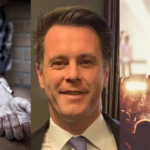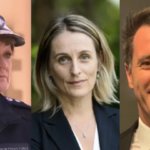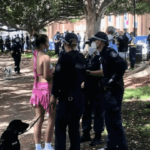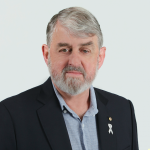Outrage Grows Over NSW Government’s Backflip on Drug Law Reform
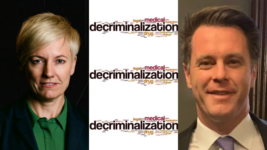
NSW premier Chris Minns last week shattered the drug law reform agenda he’d been spruiking pre-election. The Labor leader has pushed his drug summit back to the end of the term and said he has “no mandate” for decriminalising drugs on the day his party colleagues made it law in the ACT.
In a Coalition-esque manner, Minns delivered this message to a Murdoch rag, sparking the desired stir: visions of drug-fuelled parties in the capital.
However, the premier should know that it’s not solely people who use drugs without it affecting their daily lives that are outraged about this.
The parents of kids with drug problems are upset. The parents of kids who have died and will die at festivals over the next term are upset. The Uniting Synod NSW/ACT feels rorted. The NSW Bar Association supports Uniting’s call for decriminalisation. The medical experts are tired of the façade.
Drug decriminalisation means a person found in possession of a personal amount of illicit drugs is not arrested. ACT Health stated on 28 August that the government of the territory, where the Australian government sits, has made this law to “encourage people who use drugs to access health services”.
NSW Greens MLC Cate Faehrmann isn’t happy either. She’s stood side-by-side Labor MPs in the Minns government and called for reform whilst the Coalition was in office. She, along with the NSW Coroner and Commissioner Professor Dan Howard SC, know without reform deaths will continue.
Disappointment in the chambers
“For the last two elections Labor has promised to hold a drug summit to bring ‘all the policy experts together’ should they be elected. It’s been one of their ‘top priorities’,” Faehrmann told Sydney Criminal Lawyers.
“That’s why I know I’m not the only one who is incredibly disappointed in Chris Minns’ comment that a drug summit would be held closer to the next election, and that he doesn’t have a mandate for decriminalisation,” she continued.
The Greens spokesperson on drug law reform has been under the impression the promised summit that would deliberate upon drug law reforms, including decriminalisation, would be held much sooner and this would provide mandate to implement reforms, “just like Bob Carr did back in 1999”.
The 1999 NSW Drug Summit came as Sydney was experiencing a heroin overdose crisis. It led to the establishment of the Uniting Medically Supervised Injecting Centre Kings Cross, which has saved thousands of lives. Former Labor NSW premier Carr considers it one of his greatest achievements.
“Can you imagine if Bob Carr had taken the idea of establishing a medically supervised injecting centre to the next election?” Faehrmann pondered.
“We need courageous and principled leadership if we’re going to see evidence-based progressive drug law reform in this term of government and so far, Chris Minns has been lacking in that regard.”
Talk is cheap
Over its last two terms in office, the Labor Greens ACT government has legalised the personal use and homegrow of cannabis: a drug less harmful than alcohol or tobacco. It’s implemented pill testing, which stops people ingesting toxic substances, as well as evidence-based decriminalisation.
Drug law reform has been a prominent issue in NSW since five young people died at festivals in the summer of 2018/19. Then premier Berejiklian’s denial of the solutions the ACT has implemented caused her to go to the lengths of attempting to shut down the festival industry as a response.
“In multiple public forums before the election, Labor MPs have cited a future drug summit when asked about their position on decriminalisation and other drug policies,” Faehrmann made clear.
“So, by saying he has ‘no plans’ to pursue a policy of decriminalisation before a drug summit has even taken place, Chris Minns has essentially broken a key election promise.”
The NSW Greens spokesperson on harm reduction further expressed her extreme frustration in reading that Minns said drug decriminalisation would have “serious” consequences, which is in line with the Daily Telegraph’s habitual sensationalism when reporting on lifesaving drug law reforms.
“How can Labor say they’ll hold a drug summit to guide them on drug policy response and then rule out decriminalisation, which is one of the key reforms that experts and stakeholders agree is needed to save lives?” Faehrmann stressed.
Listening to, not hiding from, the evidence
In the same masthead, Murdoch ran further 28 August articles suggesting NSW residents will flock to the ACT for drug-fuelled parties, along with another featuring AFP deputy police commissioner Neil Gaughan threatening to arrest people who slightly breach the new decriminalisation laws.
“This whole story, where the AFP deputy commissioner was quoted, was a beat up by the Daily Telegraph to back Minns into a corner on drug law reform and unfortunately it worked,” Faehrmann elaborated.
“Thankfully, his view is not the majority view in the ACT and the Labor Greens government there is leading the way in terms of what sensible evidence-based drugs policy looks like.”
The ACT has decriminalised eleven of the most popularly used illicit substances. And Canberrans can check any purchased substances at the fixed-site pill testing/drug checking facility run by medical professionals using laboratory equipment.
If an individual is found in possession of a small quantity of an illicit substance, they’re now required to either attend a treatment program or pay a small fine.
The ACT policy is modest compared to the model that’s been operating in Portugal since 2001. Prior to its implementation and because of the nation’s location on the continent’s drug smuggling route, illicit drugs were a serious issue, with 1 percent of the population heroin dependent.
These days, Portugal has some of the lowest drug-related death and HIV infection rates on the continent. Drug-related crimes haven’t soared. Indeed, people are more respectful to one another.
Eminent drug law reformist Dr Alex Wodak has stressed in the past that Portugal didn’t solely implement decriminalisation, but it was accompanied with investment in rehabilitation. And he changed the opinion of Carr on drug law reform and harm reduction prior to the 1999 summit.
Faehrmann added that the ACT government are standing strong against the war on drugs rhetoric, which Carr was about to act upon prior to considering Wodak’s evidence. The Greens MLC deemed the drug war a failure, as did The Global Commission on Drug Policy back in 2011.
“By removing criminal penalties for the possession of and personal use of drugs people in the ACT will now be able to seek help if or when they need it,” Faehrmann continued.
“Right now, in NSW, people are afraid to seek help because of the ongoing police harassment and fear of criminal penalties if they do.”
Blocking lifesaving reform
The Global Commission recommended states end the criminalisation of people who use drugs in 2011, as forty – now fifty – years of the failed drug war has led to a massive expansion of criminal networks, increased drug use and has seen a huge spike in arrests and incarcerations.
Commissioners included former UN secretary general Kofi Annan, former US secretary of state George Shultz, former Mexican president Ernesto Zedillo, former Swiss president Ruth Dreifuss and Richard Branson. Today, former New Zealand prime minister Helen Clark chairs the commission.
“The NSW Government so far has rejected any sensible drug law reform proposals on the basis that the drug summit is coming up,” pointed out Faehrmann, who currently has a drug decriminalisation bill on notice to state parliament, which won’t be her first such legislation.
Seventy organisations support Uniting’s Fair Treatment decriminalisation campaign, including the Aboriginal Legal Service NSW/ACT, the Anglican Church of Australia Public Affairs Commission, the NSW Council for Civil Liberties, the NSW Doctors’ Union, NDRI and the Kirby Institute.
“I’ll be continuing to work with stakeholders to ensure a drug summit takes place in the first half of next year,” Faehrmann maintained.
“Chris Minns may have made a ‘captains call’ but the NSW government is not a one-man show and so I’m hoping that there’s enough impetus within Labor to get it done, and soon.”


